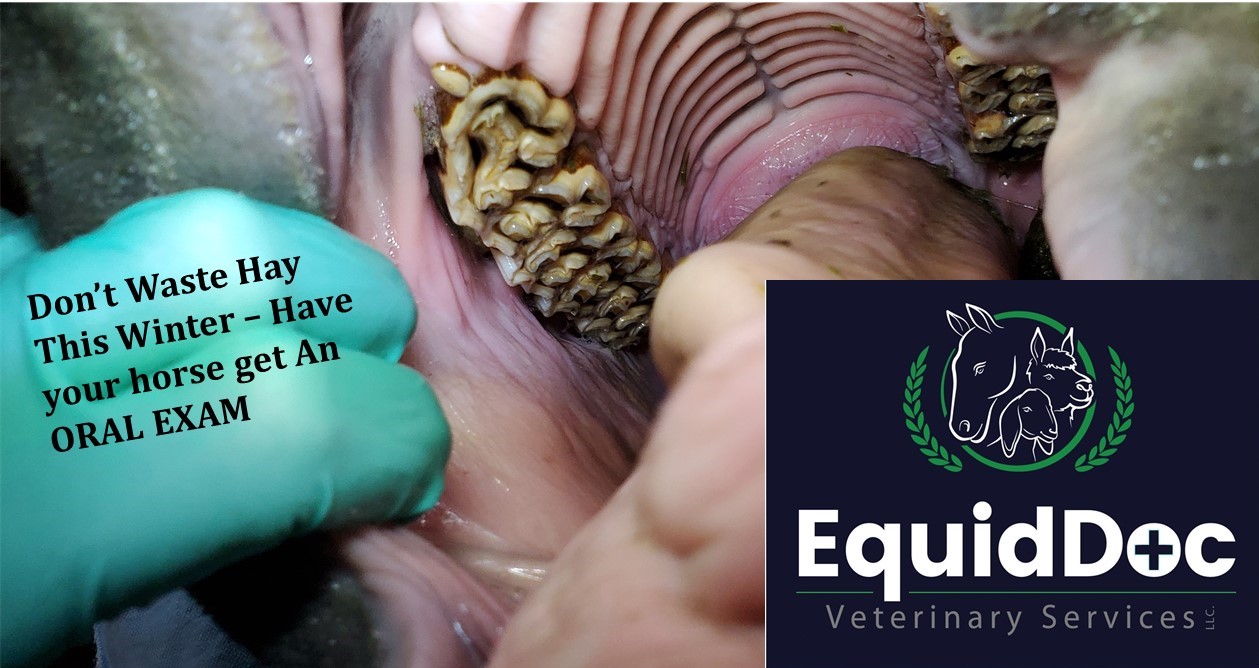Most hardy New Englanders are more than prepared for winter weather, but as horses age, additional needs must be considered to make sure they are happy and healthy in colder temperatures. Most New England horses grow an impressive winter coat but that’s not the main thing keeping them warm while snow piles up on their back; the real furnace is fermentation, and optimal fermentation depends on the health of the mouth!
Proper Chewing: Fermentation takes place in the cecum, in the hindgut of the horse, and forage is the fuel for this fire! However, the forage is only useful if it is properly grinded down by the horse’s teeth. Horses that cannot properly grind hay will be less efficient at absorbing nutrients and can also suffer intermittent diarrhea or “squirts”, quidding, weight loss, and esophageal obstruction (choke).

Find the Problem: EquidDoc recommends an oral exam during the fall months, especially in senior (15 years or older) horses. Oral exams can reveal if the horse has fractured or missing teeth, expired teeth, sharp points & hooks, or an uneven grinding surface. Some of these abnormalities can be dealt with on the farm with floating and extractions, and often times our veterinarians will recommend nutritional changes too.
Fix the Problem: Missing and expired teeth are the most common oral exam findings in senior horses. Expired teeth refer to teeth that no longer erupt through the gumline and have a smooth grinding surface. Fractured and missing teeth can result in feed packing and an increased risk of infections. All the above contribute to how well (or poorly) your horse grinds their hay or grass, and therefore how efficiently your horse is fueling the fermentation fire.
Fix the Feed: Your EquidDoc veterinarian can help determine if your horse should be put onto a pelleted or cubed (alternate) forage instead of long-steamed hay. Alternate forage is hay that is already cut to a short length for efficient digestion in the hindgut. Horses that can no longer safely eat long-stemmed hay can receive all their nutrition through alternate forage. The alternate forage should be measured out when dry, but always thoroughly soaked before feeding. The EquidDoc team can provide a nutritional consult to help determine how much alternate forage your horse should have and whether a grain concentrate should be fed or not.
Don’t Waste $: An oral exam will pay for itself by making sure the feed you supply is being used effectively and efficiently. Call EquidDoc @ 508-885-4205 or email, office@equiddocvet.com, to set up an appointment for an oral exam and to talk nutrition before the frigid temps are upon us.

